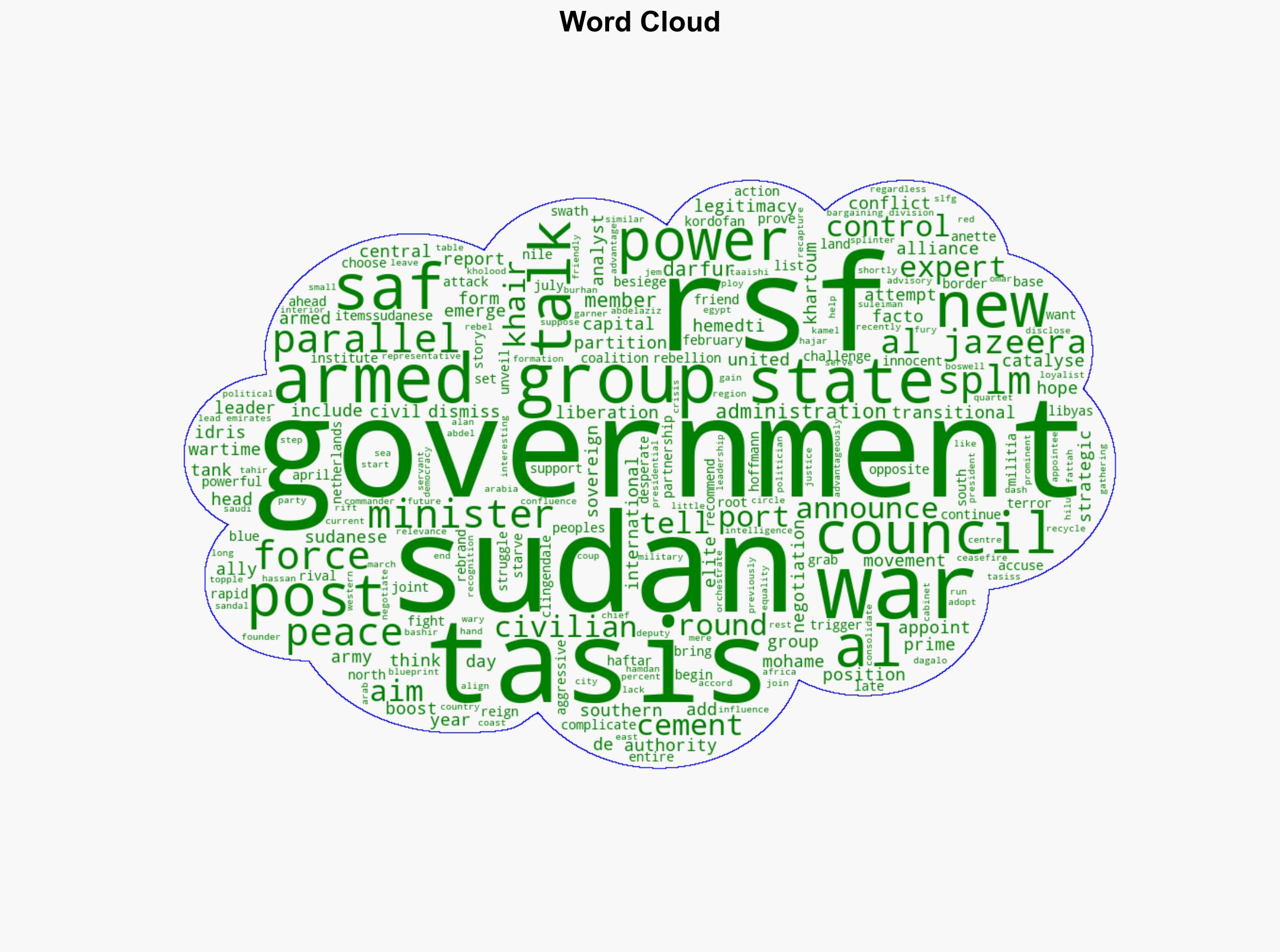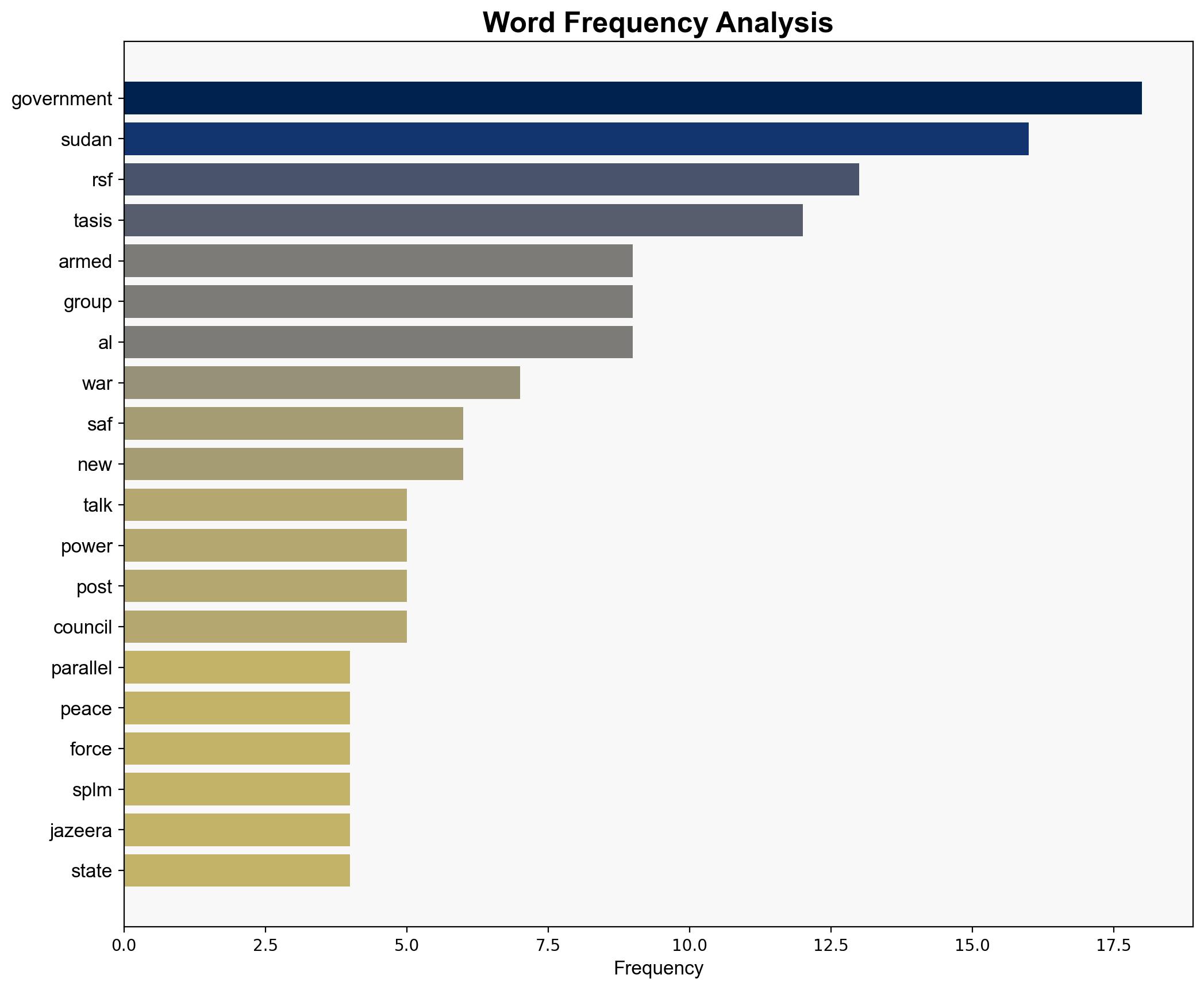Why Sudans RSF chose this parallel government ahead of peace talks – Al Jazeera English
Published on: 2025-07-28
Intelligence Report: Why Sudans RSF chose this parallel government ahead of peace talks – Al Jazeera English
1. BLUF (Bottom Line Up Front)
The Rapid Support Forces (RSF) in Sudan have established a parallel government to strengthen their negotiating position ahead of peace talks. The most supported hypothesis suggests this move is a strategic attempt to gain legitimacy and leverage against the Sudanese Armed Forces (SAF). Confidence level: Moderate. Recommended action: Monitor developments and engage with regional partners to mediate and prevent further destabilization.
2. Competing Hypotheses
1. **Hypothesis A**: The RSF’s establishment of a parallel government is a strategic maneuver to gain legitimacy and leverage in upcoming peace talks. This hypothesis is supported by the timing of the announcement and the composition of the government, which includes influential figures and groups.
2. **Hypothesis B**: The RSF’s actions are a desperate attempt to rebrand and consolidate power in response to internal and external pressures, including diminishing influence and legitimacy. This is indicated by the RSF’s history of aggressive tactics and the lack of international recognition for the new government.
3. Key Assumptions and Red Flags
– **Assumptions**: Both hypotheses assume that the RSF seeks to alter the power dynamics in Sudan. Hypothesis A assumes the RSF has sufficient support to gain legitimacy, while Hypothesis B assumes a lack of international recognition will hinder the RSF’s efforts.
– **Red Flags**: The RSF’s history of violence and the potential for increased civilian harm. The timing of the announcement may indicate a reactionary rather than strategic approach.
– **Blind Spots**: Limited information on the internal dynamics within the RSF and its alliances, as well as the international community’s potential responses.
4. Implications and Strategic Risks
The establishment of a parallel government could lead to further fragmentation of Sudan, complicating peace efforts and potentially escalating into broader conflict. Economic instability may increase as resources are diverted to support competing governments. Geopolitical tensions could rise if regional powers choose sides, impacting regional security.
5. Recommendations and Outlook
- Engage with regional partners to mediate and encourage dialogue between the RSF and SAF.
- Monitor the situation for signs of escalation and prepare contingency plans for potential humanitarian crises.
- Scenario Projections:
- Best: Successful mediation leads to a unified government and peace agreement.
- Worst: Escalation into full-scale civil war with regional spillover.
- Most Likely: Protracted negotiations with intermittent violence and continued instability.
6. Key Individuals and Entities
– Mohamed Hamdan “Hemedti” Dagalo
– Abdelaziz al-Hilu
– Kholood Khair
– Suleiman Sandal
– Al Tahir Hajar
– Mohamed Hassan al-Taaishi
7. Thematic Tags
national security threats, regional focus, geopolitical instability, peace negotiations





